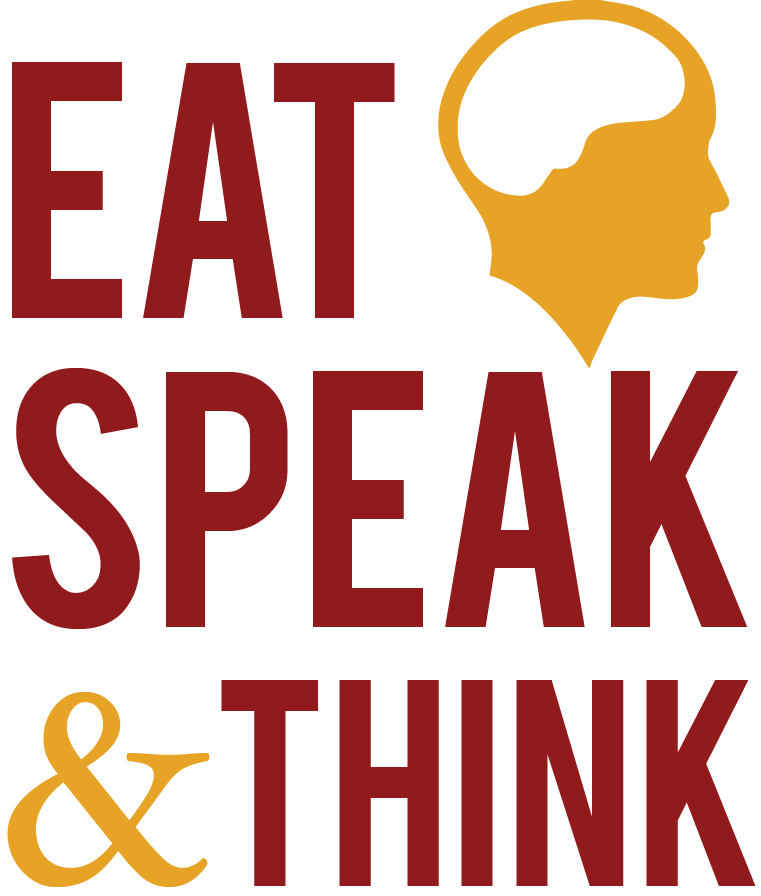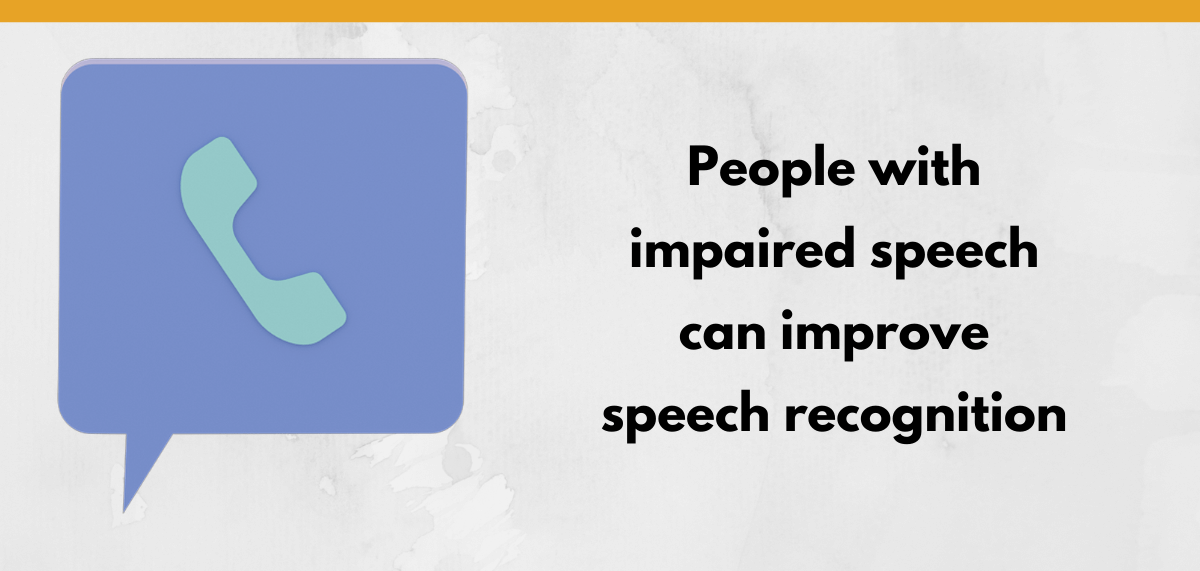I clearly remember how excited Steve was when he told me that he could use the bank’s automated phone system for the first time in years. He was one of my patients who had a speech impairment due to Parkinson’s disease. We were nearing the end of the LSVT LOUD voice program, and his speech was much easier to understand than it had been the previous month.
His comment brought home how difficult it is for many of our patients to succeed at everyday tasks like navigating a phone menu via voice command, placing a drive-through order, or using a voice-activated smart device. Now people who have a speech impairment can contribute speech samples to Google Research’s Project Euphonia to improve speech recognition.
Outline:
- What is Project Euphonia?
- How you can help Project Euphonia.
- Who is eligible to contribute a speech sample?
- How do I sign up?
- What’s the process?
- What do I get for participating?
- What is Project Relate?
- Related Eat, Speak, & Think posts.
What is Project Euphonia?
Millions of people around the world have speech that is difficult for current technology to understand, making it difficult or impossible for them to use voice-activated tech. Google Research aims to improve speech recognition for people who have atypical speech through Project Euphonia.
Project Euphonia is an initiative that aims to collect speech samples from people around the world who have impaired speech and use them to design better speech recognition technologies.
To date, they have gathered more than 1400 hours of speech samples from over a thousand speakers.
They’ve used this data to train a personalized automatic speech recognition program, which is fine-tuned using the speech sample from the target speaker. They have improved the word error rate up to 85% in specific domains compared to standard speech recognition trained on typical speech.
Project Euphonia is asking for your help in collecting more speech samples to improve speech recognition for all English-speaking users of Google technology.
How you can help Project Euphonia improve speech recognition
If you have trouble using voice-activated technologies due to a speech or voice problem, you can record yourself talking to help the project if you meet the basic requirements.
Speech-language pathologists, you can let your patients know about the project. If you spend an hour or more directly helping someone record outside of normal working hours, Google will pay $50 an hour (up to 11 hours per tax year). Report your time on this form.
Even if you’re not a speech-language pathologist but know someone who has impaired speech, you can let them know about the project. If you don’t live in the same house, you can also earn $50 an hour if you help that person record (up to 11 hours per tax year). Report your time on this form.
Who is eligible to contribute a speech sample?
There are a few basic requirements:
- Be at least 18 years old.
- Speak and read English fluently.
- Have trouble being understood by others (not just because of an accent).
- Have access to an Android or iOS mobile device or a computer with a microphone.
How do I sign up?
If you want to contribute a speech sample, you can find a short form on Project Euphonia’s “Getting involved” page. Just scroll down to the “Expressing Interest” section and click the link. You’ll receive a welcome email with the details, including a link to the ChitChat app.
What’s the process?
- Open the ChitChat app.
- Log in, if prompted.
- Record yourself reading each phrase. (You can have each phrase read aloud, if reading is difficult.)
You’ll be asked to record 300 phrases. You can record as many or as few as you’d like in a day. The phrases are commonplace things we say, such as:
- Turn on the TV.
- I am hungry.
- How are you doing?
- Did you have a nice day?
While it’s okay to re-record any phrase, don’t try to make your speech sound better than it typically is. The point of the project is to improve speech recognition for everyday speech that is difficult to understand.
What do I get for participating?
Besides the satisfaction of contributing to research that is working to improve speech recognition for people who have difficulty being understood?
You’ll also receive a gift card for $60 USD if you record 300 phrases that can be used for the project.
Anyone who directly helps a person to record phrases can earn $50 an hour, as long as they don’t live in the same household (up to 11 hours per tax year). Report your time on this form.
What is Project Relate?
In November 2021, Google launched a new app for people who have impaired speech called Project Relate. They’re asking for English-speaking testers in Australia, Canada, New Zealand, and the US.
After recording 500 phrases in the Project Relate app, you’ll receive a personalized speech recognition model to use. You may continue recording more phrases, which may increase accuracy. Even so, Google can’t guarantee that the app can be personalized for everyone who has a speech impairment.
This personalized model, trained on your specific speech, offers three functions:
- Listen: The app transcribes speech-to-text in real time, so others can read what the person with impaired speech is saying. Or the person can copy and paste it into another app.
- Repeat: The app will repeat what the person with impaired speech said in clear speech.
- Assistant: The person with impaired speech can communicate directly with their Google Assistant (and be understood).
If you or someone you know has impaired speech and would like to try it out as an early tester, simply fill out the interest form at the bottom of the page.
Related Eat, Speak, & Think posts
- Message banking tutorial.
- Voice banking tutorial: Acapela and ModelTalker.
- Easy voice banking with The Voice Keeper.
Featured image by Drawcee on Canva.com.
Lisa earned her M.A. in Speech-Language Pathology from the University of Maryland, College Park and her M.A. in Linguistics from the University of California, San Diego.
She participated in research studies with the National Institute on Deafness and other Communication Disorders (NIDCD) and the University of Maryland in the areas of aphasia, Parkinson’s Disease, epilepsy, and fluency disorders.
Lisa has been working as a medical speech-language pathologist since 2008. She has a strong passion for evidence-based assessment and therapy, having earned five ASHA Awards for Professional Participation in Continuing Education.
She launched EatSpeakThink.com in June 2018 to help other clinicians be more successful working in home health, as well as to provide strategies and resources to people living with problems eating, speaking, or thinking.



Be First to Comment